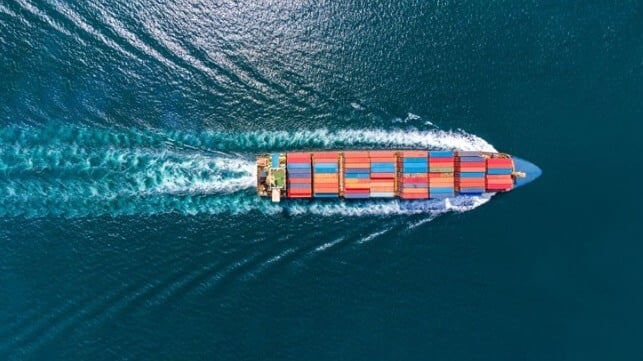UN Trade Body Warns Shipping is in a Period of Fragile Growth, Rising Costs

After years of strong growth in global seaborne trade volumes, a new report from the United Nations’ trade and development organization UNCTAD warns that global maritime trade is entering a period of fragile growth, rising costs, and mounting uncertainty. The report is calling for more action to stabilize trade policies, investments in sustainability and digitalization, cautioning that rising freight costs most endanger smaller and less developed countries, which are net importers of food and other essential materials.
According to the data from UNCTAD, global seaborne trade volumes grew a modest 2.2 percent in 2024. They warn, however, that it is expected to slow to just 0.5 percent in 2025. Vessel rerouting, for example, they warn drove ton-miles to a record 6 percent in 2024, which was nearly three times faster than trade volume growth.
They further warn that geopolitical tensions, new trade barriers, and climate pressures that are reshaping shipping routes are pushing up costs and exposing vulnerabilities in the global economy. They write that these pressures are mounting as the slowdown in global seaborne trade emerges.
“Small island developing states, least developed countries, and net food importing nations are the most vulnerable, because higher freight costs quickly translate into more expensive imports and food insecurity,” reported Regina Asariotis, Chief of UNCTAD’s Trade Logistics Branch.
The reroutings have also contributed to increases in congestion and longer waiting times at global ports. UNCTAD highlights the urgent need to invest in digital systems while finding that many developing countries continue to lag behind in digitalization.
It also highlights the uncertainties over net-zero strategies, saying that clear regulatory signals are vital to spurring fleet renewals and new fuel infrastructure to reduce emissions. It notes that the shipping industry’s greenhouse gas emissions rose five percent in 2024, with only eight percent of the world’s fleet tonnage currently equipped to use alternative fuels.
“Persistent high transport costs risk hitting developing countries the hardest,” said Grynspan. “Maritime transport must be resilient, inclusive, and sustainable if we are to weather the turbulent waters ahead.”
UNCTAD believes that, in addition to stable trade policies to reduce uncertainties and restore confidence in supply chains, support for vulnerable economies will be required to help mitigate higher costs likely to come as shipping transitions to meet the current environmental challenges. They believe investment is required for shipping and port infrastructure, as well as digitalization and cybersecurity. The 2025 report calls for accelerating these focuses, saying that they will reduce some of the pressures, but UNCTAD warns of “stormy seas” ahead as trade slows and costs rise.
